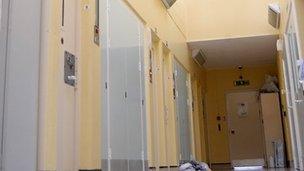
Participating at the Go Feminist conference earlier this month, I sat and listened to Herlinda. Herlinda was there to talk about her experience as a woman claiming asylum in the UK after fleeing persecution in the Democratic Republic of Congo (DRC), a country where rape is “commonplace” and perpetrators generally go punished.
Herlinda’s story – of claiming asylum in the UK, of being disbelieved by officials, of ending up destitute and sleeping rough – is similar to the accounts given by all too many women who seek asylum here.
Indeed, her story is dispiritingly familiar. In January Asylum Aid published our new report, “I feel like as a woman I’m not welcome”, which combines legal analysis and interviews with asylum-seeking women and their legal representatives to test the Government’s promise to make the asylum system more gender-sensitive. And while political rhetoric on this has been encouraging of late – the Deputy Prime Minister promised in May 2011 that “we’re ensuring the process is sensitive to the needs of women and girls” – the situation on the ground can still be desperate.
I spoke with women who had been denied even basic standards of privacy when claiming asylum at the UK Border Agency (UKBA) unit in Croydon, so that the information they were asked to share with officials was compromised from the start (something that has lately attracted the concern of the independent Chief Inspector of the UKBA). I talked with one woman who, having claimed asylum after escaping from sex traffickers, was asked by immigration officials how many men she had slept with and whether she enjoyed working as a prostitute. And I met with a mother who, having been forced to move cities so that she could receive accommodation and support from the UKBA, was so scared that she and her children dared not leave their unfamiliar new housing for three days. I heard story after story like this each day while conducting the research.
The stakes could hardly be higher. When someone flees gender-based violence and persecution in their home country, they turn to our asylum system in desperation. But too often they find a procedure which is dysfunctional and ill-equipped to meet their needs. We know from previous research that women are too often disbelieved when they seek asylum, and that they have a higher chance of winning their appeal when the case is scrutinised in more detail. We know that the specific grounds on which victims of gender-related persecution might be recognised as refugees – as a Particular Social Group – is worryingly misunderstood and underused by asylum decision-makers. The quality of decisions when women seek asylum has long been a concern, and this new research exposes how deeply other causes for concern run through the full, end-to-end asylum system. There is limited consideration of gender issues in current legislation, and where UKBA policies do provide safeguards to women they are too seldom implemented in practice. From the way asylum interviews are conducted to living conditions in accommodation and immigration detention, asylum-seeking women continue to be treated very poorly. This is morally indefensible.
The Government has tools at its disposal for addressing this. Focused work on the daily operation of the asylum system – ensured privacy for anyone making their asylum application in Croydon, for example, or accepting the need to reconsider a claim where there is late disclosure of rape or sexual violence – should go hand-in-hand with strategic leadership that places gender at the heart of the asylum system. With the position of Gender Champion of the UKBA currently unoccupied, now would be a good finally to time to invest that role with influence and real meaning. The asylum system won’t be fair, the Deputy Prime Minister has admitted, “until we’re sure no single group is being singled out”. All of us who work with women asylum seekers will continue to hold the Government to account. We are only asking, after all, that they honour their own promises.
(This first appeared at The F-Word, here: http://www.thefword.org.uk/blog/2012/02/the_uk_asylum_s. Thanks to The F-Word for sharing.)

